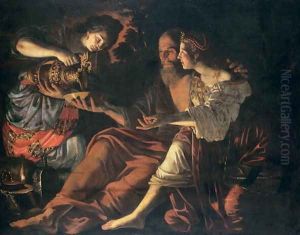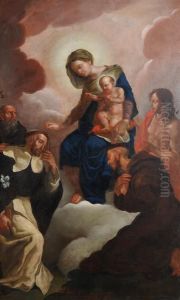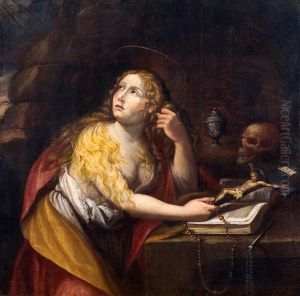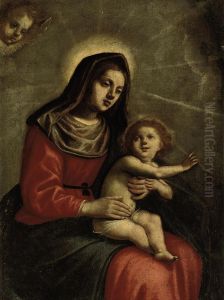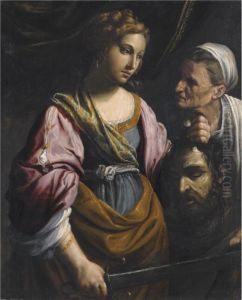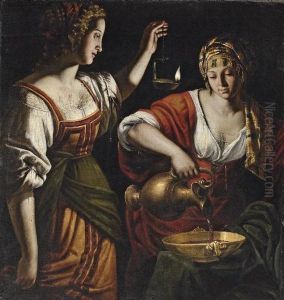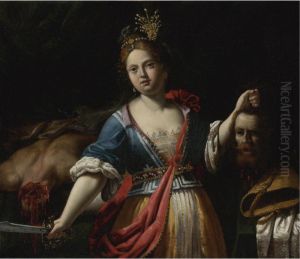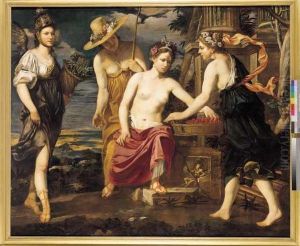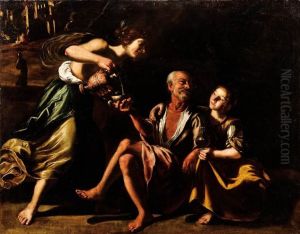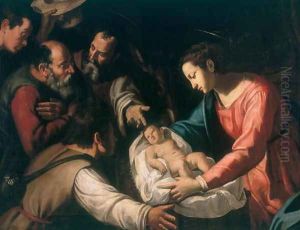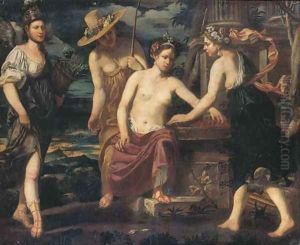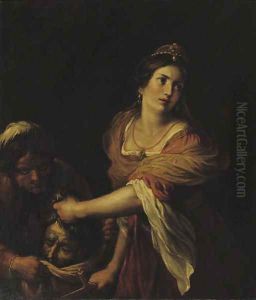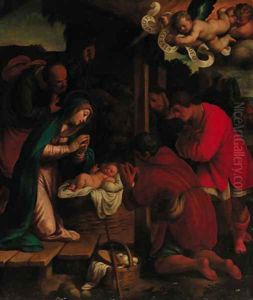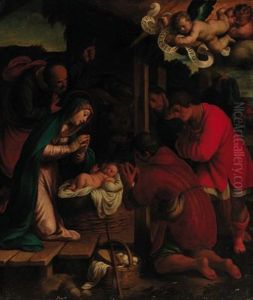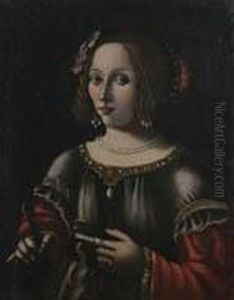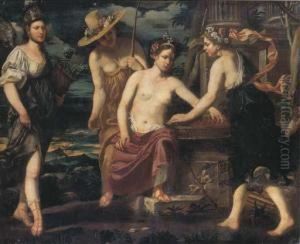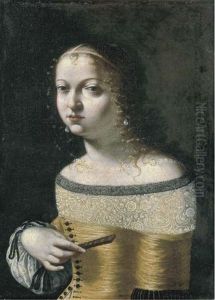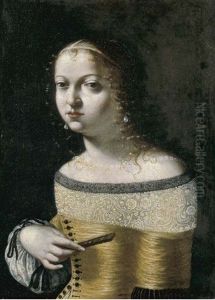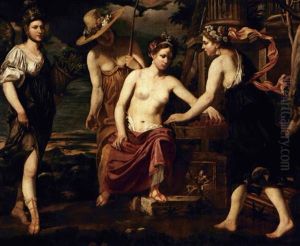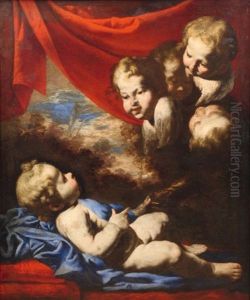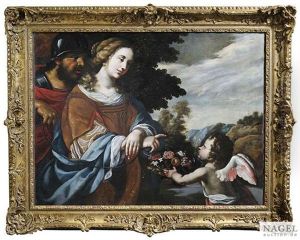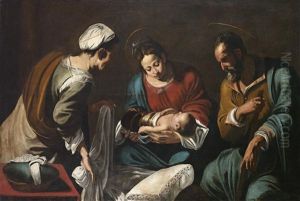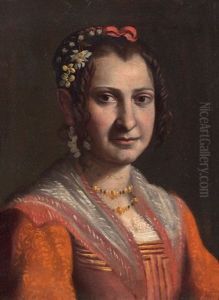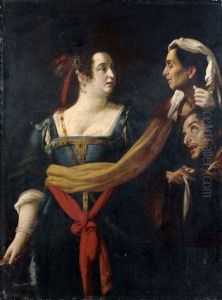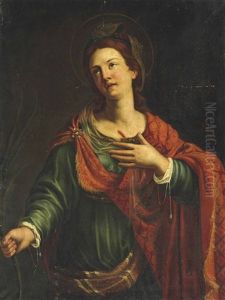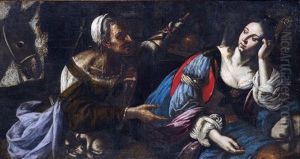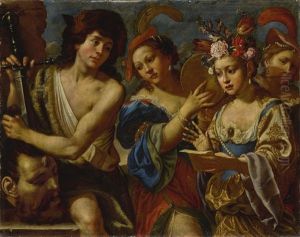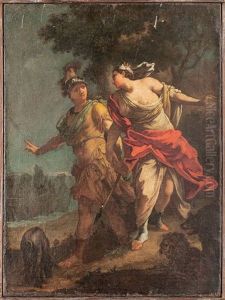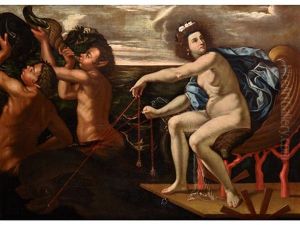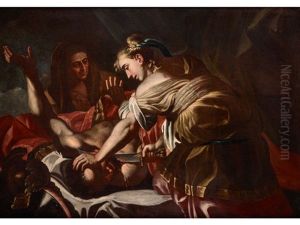Giovanni Francesco Guerrieri Paintings
Giovanni Francesco Guerrieri was an Italian painter and a significant figure in the early Baroque period. Born in Fossombrone, Italy, in 1589, Guerrieri was initially influenced by the work of his contemporary, Caravaggio, whose dramatic use of light and shadow, as well as his focus on realism and the emotional state of his subjects, profoundly impacted the young artist. Guerrieri's early work shows a strong Caravaggesque influence, characterized by intense chiaroscuro, realistic depictions of figures, and a marked sense of drama.
Guerrieri's career spanned several decades, during which he developed a distinctive style that, while rooted in Caravaggesque principles, displayed his unique approach to composition and color. He worked in various cities across Italy, including Rome, where he was exposed to the works of other Baroque artists, further influencing his style and technique.
Among Guerrieri's most notable works are his religious paintings, which often depict scenes from the Bible with a profound sense of humanity and emotion. His ability to convey the psychological depth of his subjects, combined with his mastery of light, set his works apart and contributed to his reputation as one of the notable painters of his time.
Despite his achievements, Guerrieri's work was somewhat overshadowed by the more prominent figures of the Baroque period, and it was only in later centuries that his contributions to the art world began to be fully appreciated. Today, his paintings are recognized for their emotional intensity, technical skill, and innovative approach to the Baroque aesthetic.
Guerrieri continued to paint and influence the art world until his death in 1655. His legacy lives on through his impactful works, which continue to be studied and admired for their contribution to the evolution of Baroque art. Guerrieri's influence extended beyond his lifetime, affecting the development of Baroque style in Italy and contributing to the broader European art scene of the 17th century.
